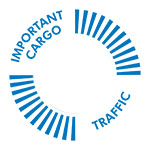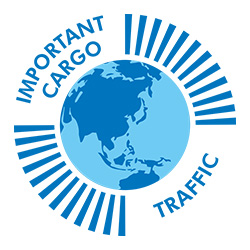Refrigerated Transportation: From Europe to the Hearts of Eurasia
Refrigerated transportation plays a pivotal role in the supply chain of food, pharmaceuticals, and other goods. This ensures the freshness, quality, and safety of products transported from European countries such as Poland, Italy, Germany, Spain, and France to destinations in Eurasia, including Ukraine, Russia, Belarus, Kazakhstan, Uzbekistan, Tajikistan, Armenia, Georgia, and Mongolia.
Contact us
In today's global market, refrigerated transportation plays a pivotal role in the supply chain of food, pharmaceuticals, and other goods requiring controlled temperature conditions. This ensures the freshness, quality, and safety of products transported from European countries such as Poland, Italy, Germany, Spain, and France to destinations in Eurasia, including Ukraine, Russia, Belarus, Kazakhstan, Uzbekistan, Tajikistan, Armenia, Georgia, and Mongolia. This article explores the specifics of refrigerated transportation, explaining its significance and operational mechanism, and highlights its versatility by discussing the range of goods that can be transported and the role of individual countries in this specialized logistics sector.
What is Refrigerated Transportation?
Refrigerated transportation is a specialized type of road, sea, or air transport that uses vehicles and containers with controlled temperatures to protect goods from spoilage, quality loss, or the effects of external factors. It is essential for the transport of perishable food products such as fruits, vegetables, meat, dairy products, as well as medicines, cosmetics, and other temperature-sensitive materials.
How Does It Work?
Refrigerated transportation requires not only specialized vehicle equipment with cooling and thermal insulation systems but also precise logistical planning and continuous monitoring of transport conditions. Advanced fleet management systems allow for real-time temperature tracking and quick response to any irregularities, ensuring maximum safety for the transported goods.
Key European Countries in Refrigerated Transportation
Poland: As an important food producer in Europe, Poland exports a wide range of food products requiring refrigerated transport, including meat, fruits, and vegetables. Polish logistics companies are well-equipped with modern fleets of refrigerated vehicles, serving both European and Eurasian markets.
Italy: Known for its rich offering of Mediterranean products, Italy exports fruits, vegetables, cheeses, and wines that require maintaining specific temperature conditions. Italian enterprises specialize in international refrigerated transport, delivering high-quality products to international markets.
Germany: Germany's economic power also manifests in advanced refrigerated logistics. German companies offer comprehensive services in refrigerated transportation, serving a wide range of products from food to pharmaceuticals.
Spain: Spain, as one of the main exporters of fresh food products in Europe, including fruits, vegetables, and fish, utilizes refrigerated transport to deliver its goods to Eurasian markets, preserving their freshness and nutritional values.
France: France not only exports food but also a wide range of wines and cheeses requiring specialized refrigerated transport approaches. French logistics companies are known for high-quality services, ensuring the safety and preservation of the organoleptic properties of products.
Refrigerated Transportation to Eurasia
Eurasia, with its varied climate and growing consumer demands, presents logistical challenges. Refrigerated transportation from Europe to countries such as Ukraine, Russia, or Kazakhstan requires not only adaptation to various legal regulations but also ensuring the continuity of the cold chain throughout the transport duration. Thanks to technological advancements and improvements in logistics management, European companies can effectively reach remote Eurasian markets, delivering temperature-sensitive products.
Summary
Refrigerated transportation is an indispensable element of modern international trade, enabling European enterprises to access Eurasian markets while maintaining the highest standards of quality and product safety. Investments in modern technological solutions, continuous staff training, and the expansion of logistics infrastructure are key to the further development of this industry and ensuring an effective bridge between continents.






